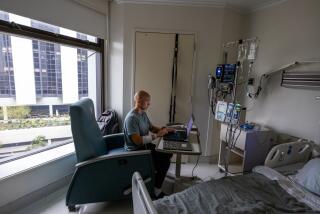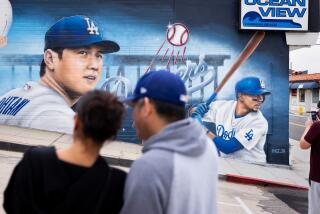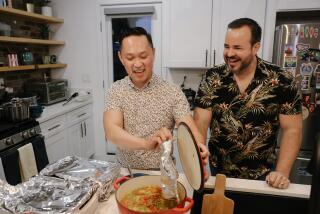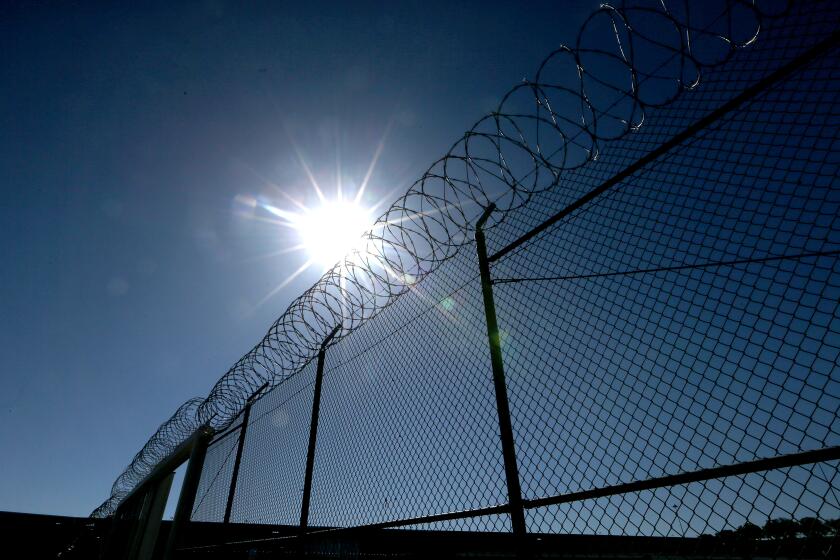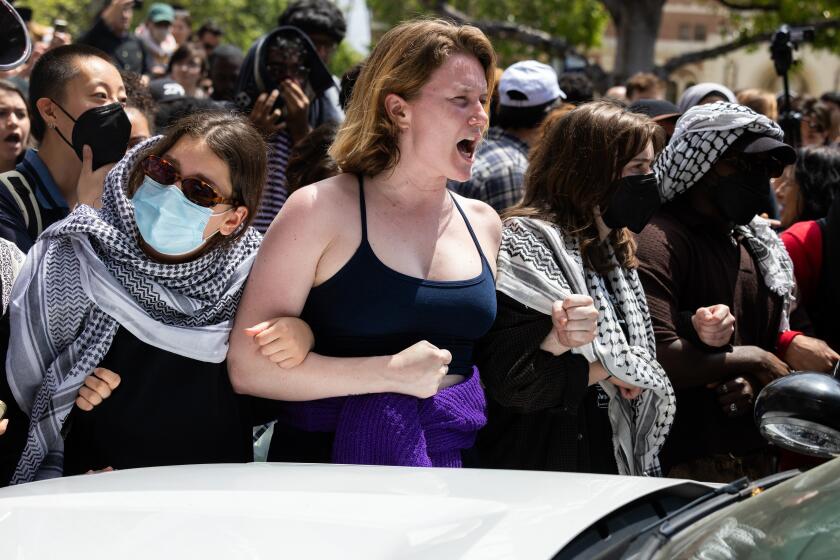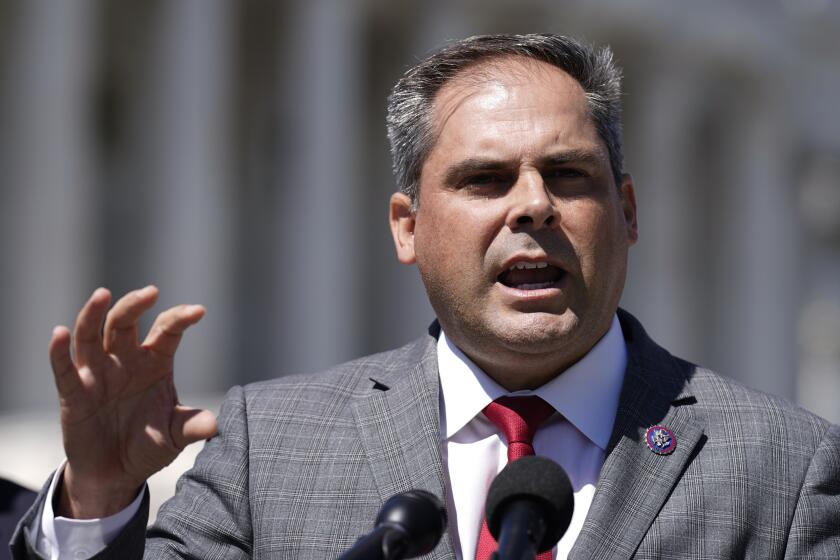Op-Ed: Manny Pacquiao fights for the Filipino

<p>An inside look at the training days as the big fight draws near.</p>
Nothing connects my extended, multigenerational Filipino family — grandparents, aunts and uncles; cousins, nephews and nieces here in the United States and back in the Philippines — quite like Manny Pacquiao.
Indeed, nothing connects all Filipinos (about 100 million in the Philippines and 14 million scattered around the world) like the 5-foot-7, 144-pound boxer known in Tagalog as Ang Pambansang Kamao. “The Nation’s Fist.”
“For many people, Manny Pacquiao is the Philippines,” said Ryan Moore, who produced and co-directed “Manny,” a documentary film on the fighter released this year. “Before Manny, when you said you’re Filipino, a lot of people said, ‘Oh, yeah, Imelda Marcos, a lot of shoes.’ Now, when you say you’re Filipino, people will say, ‘Manny Pacquiao!’”
The tie is so tight, a headline in the Guardian newspaper, in London, reads “As Manny Pacquiao’s stock rises so does the Philippine peso.” It’s so tight that Pacquiao’s “fight of the century” against Floyd Mayweather Jr. on Saturday is bigger than that catchphrase, the reported $300-million prize money, and boxing itself. For Filipino Americans, it’s a battle for recognition, for identity in a culture where, for the mainstream, Asians tend to fade into a monochromatic racialized “other.”
Did you know there are 3.6 million Filipinos in the U.S., that they make up the third largest immigrant group, behind Mexicans and Chinese? According to a joint report released this week by the Center for American Progress and AAPI Data, the country’s Filipino population has doubled since 2000. Nearly half live in California, most of them in the Los Angeles area. But unlike Mexicans and Chinese, whose presence and influence, in various forms, are palpable in California and across the country, we have a tendency to disappear, to assimilate to the point of invisibility.
It was only three years ago that the first Filipino American, Rob Bonta, was elected to the California Legislature. And it was only last week that a major news organization, the Washington Post, declared: “At long last, Filipino food arrives. What took it so long?” (Hint: We’re proud of our food, but we weren’t sure anyone else would spend money eating it.)
I first heard of Pacquiao from my lolo and lola (grandfather and grandmother), both naturalized U.S. citizens, in the early 2000s. I was in college by then, an Americanized kid who knew a lot about television and movies and nothing at all about boxing. But Pacquiao’s ascent was one of the few things I could discuss with my grandparents.
They identified with his story — raised in a poor fishing town, a caretaker for his family by age 12, fighting for a livelihood with his bare hands. My U.S.-born cousins and I identified with his crossover success: Here was a quintessential Filipino guy — he looks Filipino, he speaks with a Filipino accent, he loves to sing karaoke — embraced and celebrated by Filipinos and non-Filipinos alike. A generous guy who handed out money back in the Philippines, an athletic wunderkind who won in multiple weight classes, a certified hero. How could you not cheer?
In 2008, not long after my lolo died, I was working in Washington but I still made it a point to go home to the San Francisco Bay Area so I could watch Pacquiao fight Oscar De La Hoya with my family. We cheered again; the win was historic. But Pacquiao’s hero status was begin to slip for me.
In 2010, Pacquiao, a Roman Catholic turned evangelical Protestant, was elected to the Philippine House of Representatives. Rumor has it he has presidential aspirations. But he has been a mostly absent congressman who fought against legislation that mandated sex education and subsidized contraception in the Philippines. This is a man for the 21st century?
Here in Los Angeles, where he trains with Freddie Roach at the Wild Card Boxing Club in Hollywood, Pacquiao spoke out against same-sex marriage. (He later clarified his position, “I am against gay marriage, but I am not condemning gays.”) But I had to ask, should I still be cheering?
“I can’t speak for Manny and his beliefs. But Manny, like most Filipinos, had a deeply Catholic upbringing. It’s as much a cultural thing as it is a religious thing — in the Philippines, the line between them is blurred,” said Moore, 35, whose mother is a Filipina and whose dad is white.
Born and raised in Los Angeles, Moore attended high school in the Philippines, where he saw firsthand just how difficult life was for his mother, Cynthia, and his grandmother, Basilisa, who raised six kids by herself after her husband died. Like my grandparents, he sees his family’s struggle in Pacquiao’s struggle —from nothing, something, from hardship, triumph.
Moore has known Pacquiao for six years, five of which he spent filming and editing “Manny.” He’s gone to almost all of Pacquiao’s fights and is not much conflicted about the fighter’s iconic status.
“I mean, imagine, for a Filipino to be fighting in what is being called the Super Bowl of Boxing,” Moore said, “what is being called the biggest fight of our time, to have a Filipino fighting for us — he even wrote a song about it.”
I asked Moore whether Pacquiao thinks he’s going to win.
“Manny believes that whatever is going to be, will be. That’s God’s plan. He goes out there and does his best. But, is he extremely confident? I’d say so. I’ve never seen him this confident before.”
What does Moore think?
“I’ve never made a prediction about any of Manny’s fights,” he said, “but I will for this one because I’ve never seen him so fired up. I ‘m not a gambler, but if I did gamble, I would bet.”
Moore will be in Las Vegas watching live. Along with my lola, my uncle Rolan and my aunt Alma will be glued to the screen at a Pacquiao party. Just yesterday my cousin Gladys told me that she’s been praying for Pacquiao all week. Still conflicted, I’ll be watching too.
That song Pacquiao wrote? It’s called “Lalaban Ako Para Sa Filipino,” “I Will Fight for the Filipino.” How could I turn away?
Jose Antonio Vargas is the founder and editor of #EmergingUS, a digital magazine on race, immigration and identity that The Times will launch this summer.
Follow the Opinion section on Twitter @latimesopinion and Facebook
More to Read
A cure for the common opinion
Get thought-provoking perspectives with our weekly newsletter.
You may occasionally receive promotional content from the Los Angeles Times.
